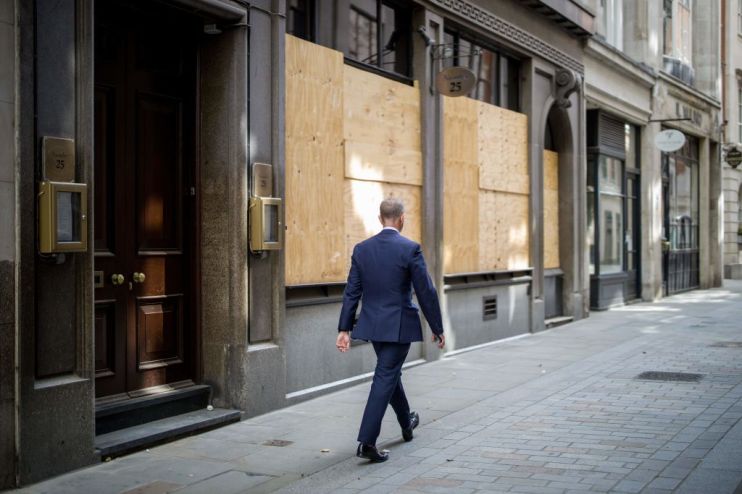Businesses warn of ‘mass redundancies’ as fresh restrictions set in

Businesses have warned Boris Johnson that the UK is facing a fresh wave of “mass redundancies” unless more financial support is provided for companies hit by Covid-19 restrictions.
In a letter to the prime minister the British Chambers of Commerce (BCC) said the government’s tiered restrictions and the looming threat of a so-called circuit breaker lockdown meant the situation for businesses was growing “graver by the day”.
The lobby group, which represents 75,000 businesses across the UK, called for further financial support in tier 2 areas such as London, where firms are technically able to operate but are suffering from a collapse in demand.
It comes as bosses brace for the end of the furlough scheme, which initially paid 80 per cent of employees’ wages.
Next month it will be replaced by the job support scheme, which requires businesses to pay 55 per cent of salaries for staff working a third of their normal hours. In areas where businesses are forced to close, the government will cover two-thirds of wages.
But this support is not available to businesses that remain open in tier 3 or those in tier 2.
Industry chiefs have warned that 200,000 hospitality workers in central London will lose their jobs this weekend as a result of the new restrictions.
Kate Nicholls, chief executive of UK Hospitality, said the tier 2 measures would lead to a “maximum squeeze on revenue with no support”, adding that it would be better for some businesses to be forced to close completely in order to access government support.
In its letter this weekend the BCC called for “a strategy that allows us to avoid economic paralysis and to manage the impact of the virus on our communities over the longer term”.
“The need for additional restrictions cannot be blamed on a lack of care by dedicated employees in businesses across the country,” it wrote.
“Instead, it demonstrates the failures of short-term decision-making and of Test and Trace systems, which must be urgently improved and expanded.”
The business group also set out five tests to limit the impact of new restrictions, including whether restrictions were proportionate and whether companies had enough time to prepare.